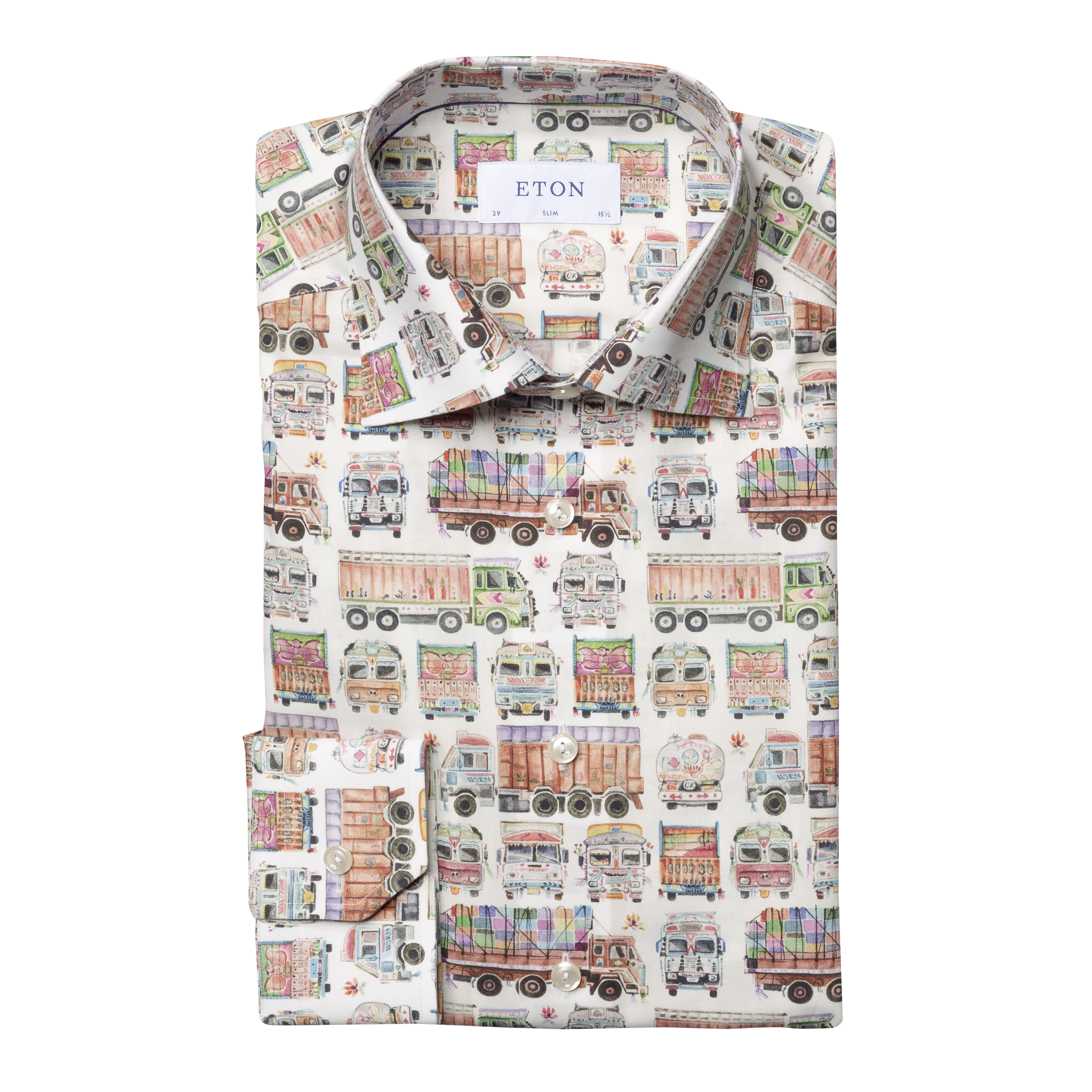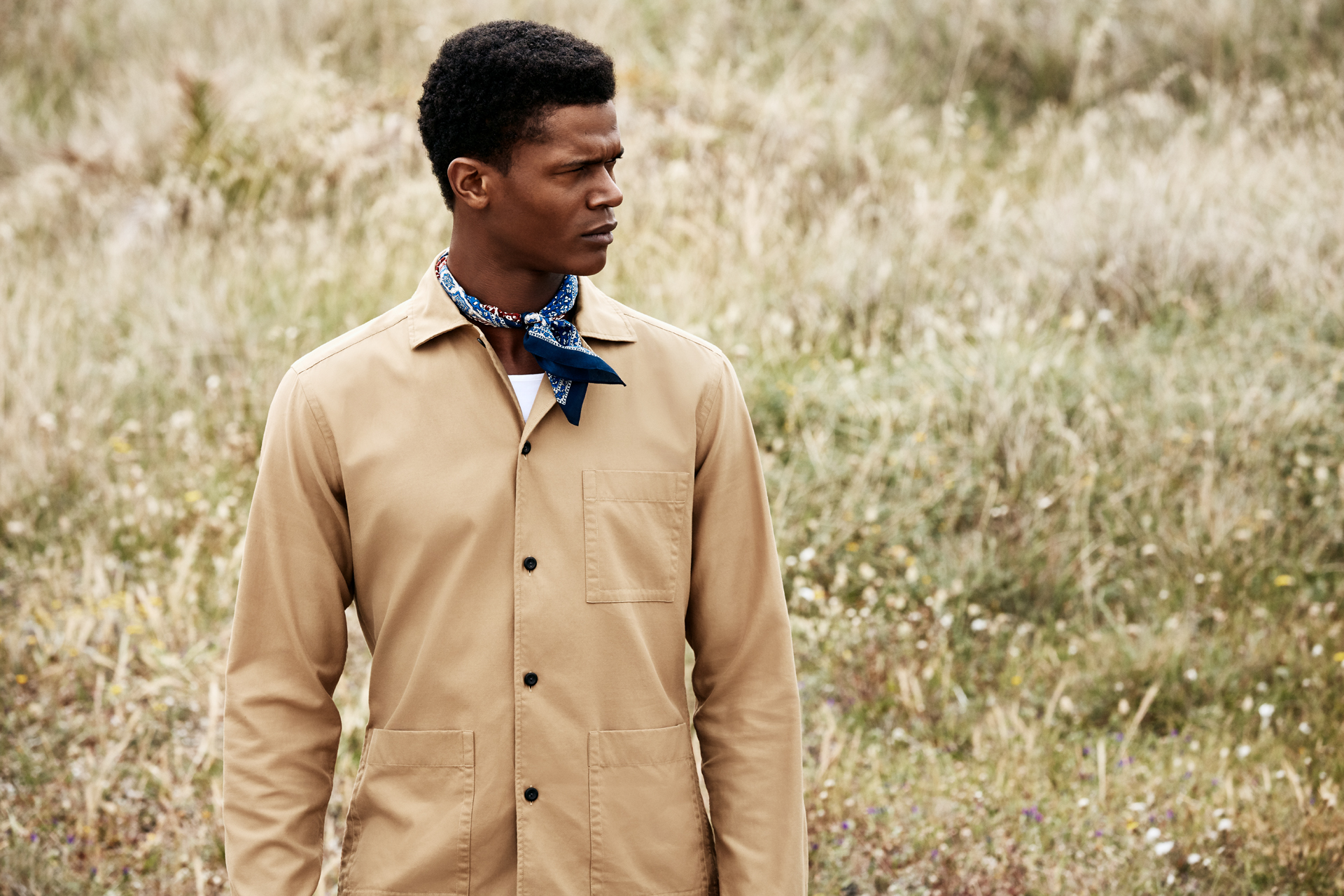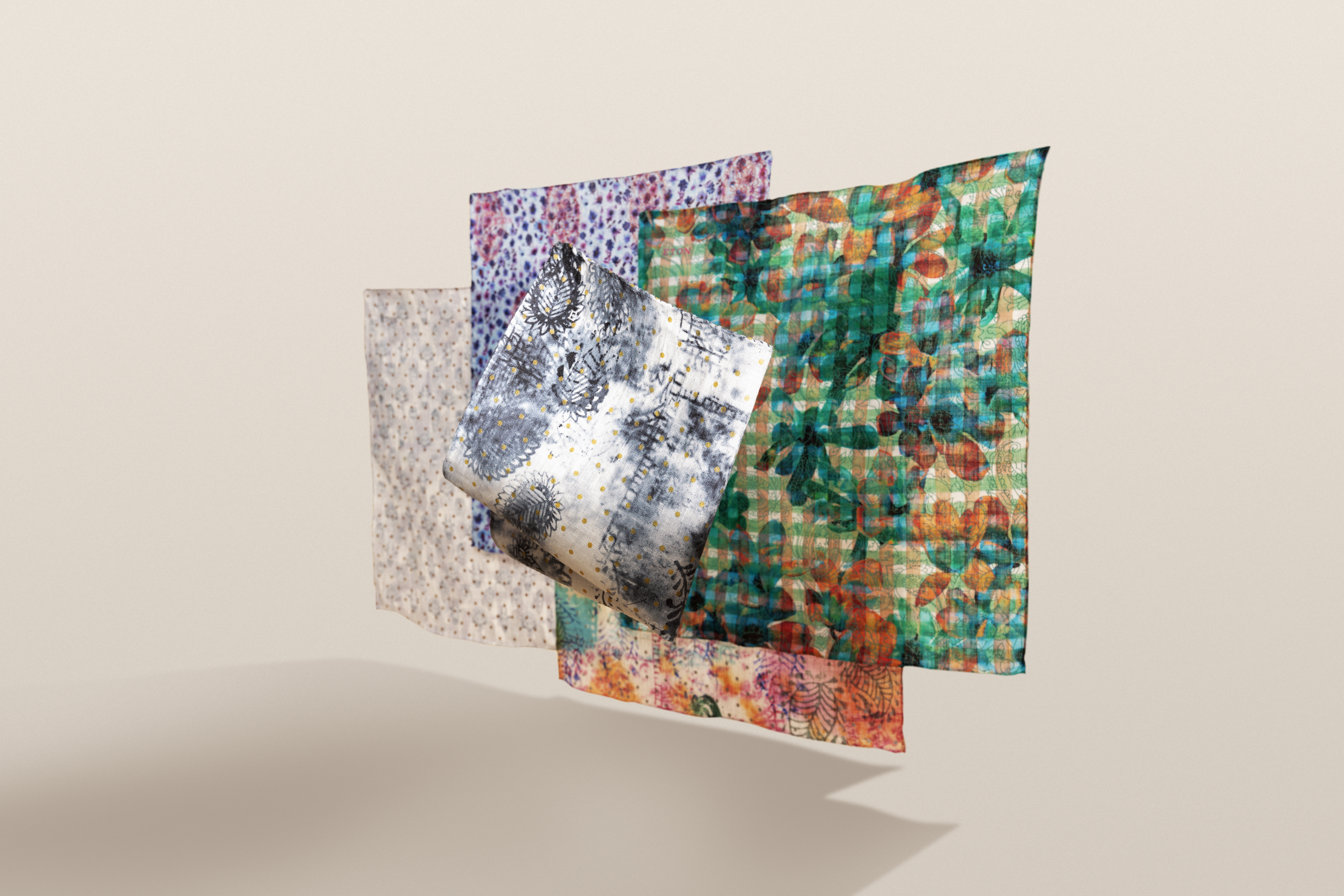I’ve long admired Swedish shirt brand Eton for their clear purpose and long term vision as far as fashion goes. Under the creative direction of Sebastian Dollinger, Eton has been producing great collections season after season, featuring something for every man: style, uniqueness and wearability.
This time around, for their Spring/Summer 2020 line, Eton traveled to India, and more specifically, Jaipur in the heart of Rajasthan. Fabrics inspired by the traditional block printing, but instead of imitating their patterns, these look like the cloth that is used to protect the printers’ tables, with its colorful bleed-through.
Pocket squares with “Horn OK Please” printed on them — the sign that is on every Indian truck, those masterful traveling art exhibits that everyone who has ever been to India has noticed and photographed probably. Yet at the heart of Eton stands their more conservative collection, the kinds of shirts that every man could wear to work and still feel unique.
I caught up with Dollinger in Florence, during Pitti Uomo and following are his thoughts on inspiration this time around, as well as what makes a truly sustainable brand.
I read about the inspiration coming from a trip to India with your team, to visit artists friends of yours, but I wanted to know how you came up with the specific patterns and Jaipur — which is a country in itself!
Sebastian Dollinger: It is! I have a love for Jaipur and the area surrounding, Rajasthan. And I have had that since I first went there a million years ago. To me, it’s freedom, to me it’s creativity, to me it’s artistry — to me it’s loads of things. To my wife, it’s the complete opposite, it’s the worst place in the world probably. She is a brand store woman, the quintessential New Yorker.

I could move to India! I’ve got friends there, they are an artist family, from India and they have an artists’ retreat outside of Jaipur, forty-five minutes in the middle of the desert. So they invited me to stay, with my colleagues… I wanted in the beginning to keep it as my private place, I didn’t want to involve work, because these are my friends, and sometimes I don’t want to mix work with some special, special places… But I love my colleagues and I said “Lets go!” And they are upcyclers that family so they collect trash all over Rajasthan and make it into art. They curate art in this way. They’re called “the Wolves of Jaipur”, because they hunt and gather and are a pack. They collect all this stuff and then make artwork out of it in the most phenomenal way.
So that’s where we stayed. But my idea of what I wanted to do with this collection was very clear from the beginning, because I love truck art. And truck art has got two countries, Pakistan which is even more insane than India, but since I had my connection with Jaipur, I went there. We went all over the Jaipur area and took pictures, shot film and interviewed drivers — we could have almost written a book with all the things that we collected. And we realized we almost had more than we needed to create a fantastic fabric collection. We also wanted to dive into the world of Ragamala paintings — Ragamala was the ancient art of depicting historical moments on leather. So it’s a particular way of painting.
In India you have quite a growing market as well, as far as consumers.
Dollinger: Absolutely, we have a strong Indian presence, mainly through a retailer called The Collective, they have fantastic partner stores and are great customers of ours.

That’s amazing if you consider how much cotton is produced and that India has its own grand production of shirts. I mean, here they are, becoming consumers of a shirt company from a far away land!
Dollinger: They want brands too. They’ve always really loved the Eton shirt, and to see what our Indian retailers thought about this collection was amazing. In the end, I thought that this collection would only be judged by one country — which was India. If we’d done a good job or not. Indians actually love this collection and it was the ultimate compliment.
There is such a fine line between respecting something and paying tribute while through cultural perception you’re making a fabric collection. It’s easy that it could become stupid, or blatantly Indian or seen through the eyes of a white man.
That’s an argument about anything that involves “cultural appropriation”. It comes up constantly with African art, for example.
Dollinger: Indians haven’t become as PC as the rest of the world in a way. But I think the feedback we got from them is that we paid a fantastic tribute to India in the real way. It is the way a trip to Jaipur should be depicted, what the actual trucks look like and the stories of the drivers are like. That was the ultimate compliment to me.

What is Eton doing as far as sustainability. I mean in production, and in the way you distribute the product, to avoid this constant stream of disposable fashion that unfortunately is clogging up our system?
Dollinger: It’s a huge problem, it’s one of the biggest problems facing the world. The clothing industry is a nasty industry in many ways. I think it starts with one very important thing and that’s creating things that last. That looks good for five, fifteen years. I have shirts from my father that are more than twenty, twenty-five years old. And they still look good. My absolute most important mission with Eton is to keep this. Every season you should try to find a way to make it even better. How can we reduce single plastics, how can we reduce everything in the offices where we work — and of course, the garments. It’s a work in progress, a development like your own personality and we have huge pressure on us, being a Swedish company that we need to be as environmental as possible. And it’s something we work on every day.
We’ve succeeded already with the garments, to have this fantastic product that’s sustainable for eons to come.
Where are the shirts made?
Dollinger: Italy, Switzerland, Romania, Sweden, so everything is very close by. A little bit in Egypt as well. With the close proximity, we can follow everything that happens. And Europe has the highest standards of manufacturing so we have nothing to hide. We are free and open to any question, to show how we do it, where we do it — because we are proud of it.


